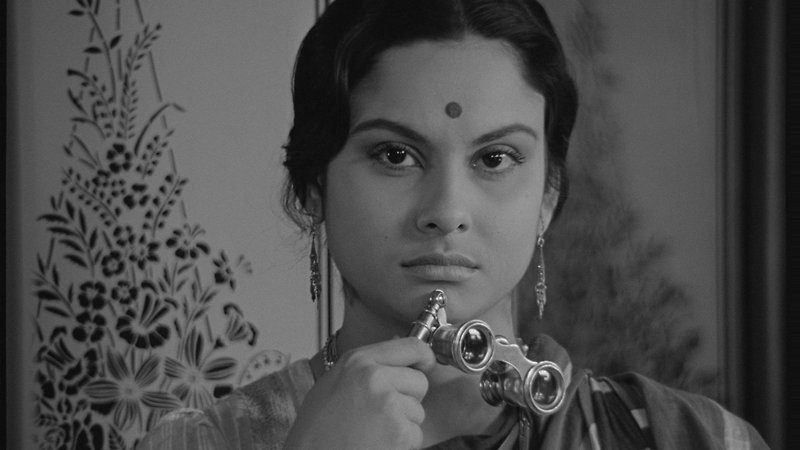A rarely seen classic of world cinema, Satyajit Ray’s deft and moving adaptation of a novella by Nobel Prize winner Rabindranath Tagore is presented in a brand new digital restoration direct from its Cannes screening.

Not to have seen the cinema of Ray means existing in the world without seeing the sun or the moon.
Screened as part of NZIFF 2013
Charulata 1964
We’re delighted to present this classic of India’s cinema in a brand new digital restoration direct from its Cannes screening. The great Bengali director Satyajit Ray launched India onto the world stage with the Apu Trilogy in the 1950s, commencing a four-decade career rich in masterpieces. None was finer than this deft and moving adaptation of a novella by Nobel Prize winner Rabindranath Tagore.
In 1870s Calcutta, an ambitious newspaper publisher arranges for his young cousin Amal to entertain his neglected wife, Charu. As the relationship develops, Charu’s feelings for Amal begin to change, with potentially devastating results for the family. Madhabi Mukherjee’s performance as Charu is flawless, and it’s perfectly complemented by Ray’s expressive camerawork to evoke the tension between her character’s sense of entrapment and longing for freedom. Although we share an extraordinary intimacy with Charu, Ray characteristically treats all of his characters with profound empathy, and their world – one that Charu herself is only able to view through opera glasses from her window – is described with uncommon richness and depth. — Andrew Langridge
“A wonderfully Jamesian study of Victorian India… Immensely funny (with the dialogue peppered by solemn anglicisms and toasts to Gladstone and the Liberals), but also elegant and gracefully moving as the heroine flirts with romance and domestic tragedy on her way to becoming the New Woman. Certainly one of Ray’s best films, with a superb music score of his own composition.” — Tom Milne, Time Out